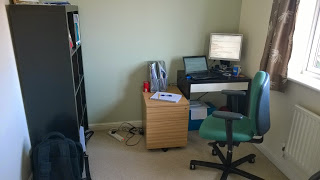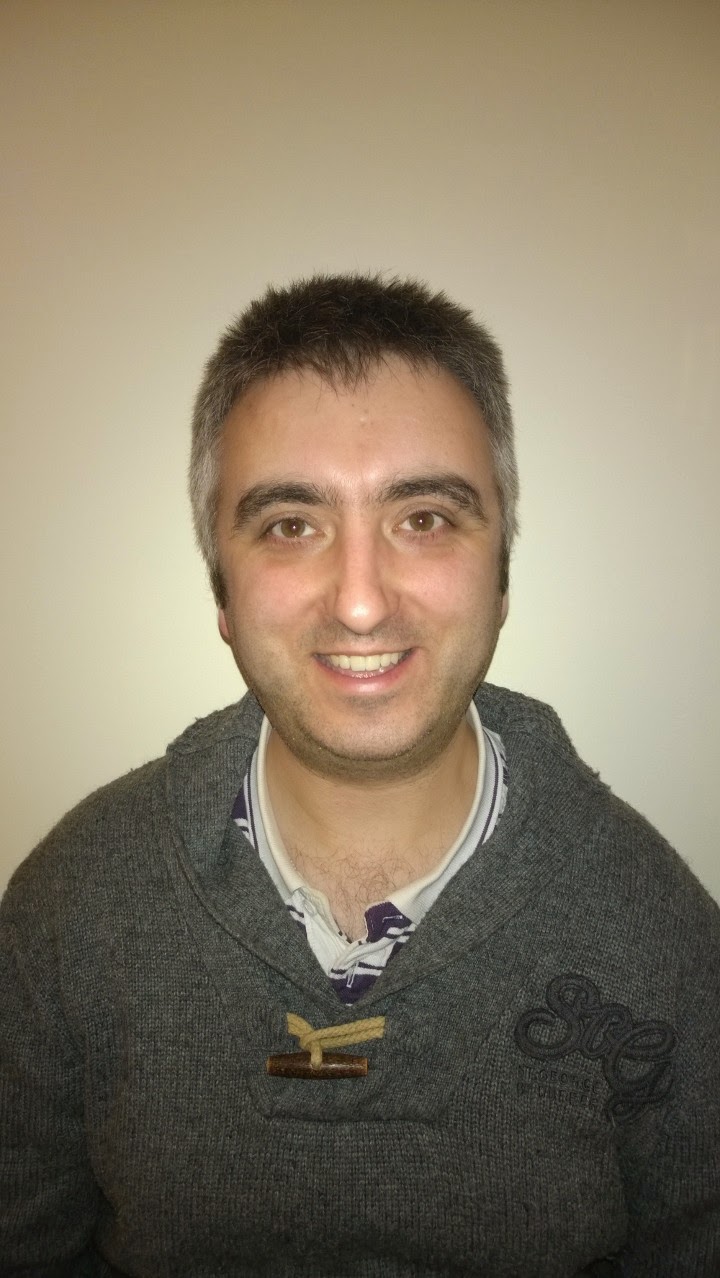I am Paul Brownbill and This is How I Work
Today, I am interviewing Paul Brownbill in the “How I Work” series. Paul has been working as a PhD researcher since October 2014 on the project titled: ‘Caring for people who have dementia in Community Hospitals: A longitudinal ethnographic study of healthcare workers’ everyday decision-making’. He previously worked on a 2-year qualitative research project between a Welsh Health-board and a University, which involved the evaluation of healthcare research governance and Semi-structured interviews with a purposive sample of researchers recently engaged with research governance. He has also previously been a Visiting Social Work lecturer at Chester University. He is a qualified Social Worker with 10 years experience. His Masters Degree thesis was titled ‘Quality of Life and the Role of Communal Space in Sheltered Housing: A Qualitative Study’.
Current Job: Phd Student
Current Location: Home
Current mobile device: Windows phone, Nokia Lumia 925
Current computer: Toshiba laptop, with separate monitor.
Can you briefly explain your current situation and research to us?
PhD student at the University of South Wales, and occasional visiting lecturer at University of Chester.
Thesis title is : Caring for people who have dementia in Community Hospitals: A longitudinal ethnographic study of healthcare workers’ everyday decision-making. Involves interviews with staff, and family of people with dementia in 3 community hospitals in North Wales. Also observations of staff at 3 community hospitals.
What tools, apps and software are essential to your workflow?
Microsoft Word and other Microsoft Office tools, including Microsoft Project to make Gantt charts.
Mendeley for references.
Google drive to save all work in the cloud.
Skype for some supervision sessions.
Dictaphone
What does your workspace setup look like?
Picture is my home office, which is a dedicated room for my work. I also have a desk in my university, in an office which I share with my supervisor. Both are fixed workspaces. 
What is your best advice for productive academic work?
Make a list at the end of one week of the things that you want to achieve the next week, and stick to it.
Also using Microsoft Project to create Gantt charts. I have a Gantt chart for the 3 years of my PhD, 6 monthly, and also monthly, in addition to the lists I create each Friday afternoon for the week ahead.
How do you keep an overview of projects and tasks?
Gantt charts in Microsoft project
Besides phone and computer, do you use other technological tools in work and daily life?
No
Which skill makes you stand out as an academic?
Listening is important when interviewing.
Ability to talk to others, even when have not known them for long or not met them before.
Attention to detail.
Ability to see a task through to the end, even when it is difficult.
Ask for help, and then take constructive feedback on board and use it to improve.
What do you listen to when you work?
Nothing
What are you currently reading?
Studies in Ethnomethodology, Harold Garfinkel
I make time to read by scheduling it into my time and making sure that I use the most appropriate part of the day, in my case the morning, to read. This is a time where I have found, based on past experience, that I take in more of what I read, as opposed to reading in the evening, or afternoon.
Are you more of an introvert or extrovert? How does this influence your working habits?
Introvert. It influences my work, in that I am not phased by working alone. I enjoy the company of others, but when I need to I am happy to work for long periods on my own and only see others occasionally.
What’s your sleep routine like?
11pm-7.30am
No problems sleeping
What’s your work routine like?
9am-5pm.
Very infrequently I may work in the evenings, but this is usually time I spend with my family. I treat my PhD as a normal job, and work accordingly. This will change when I start to carry out my fieldwork, and may have to observe or carry out interviews early in the morning, when a hospital ward shift starts and finishes.
What’s the best advice you ever received?
Don’t be afraid to ask for help when you need it, as the worst thing that can happen is that they criticize your work, which you can then use to improve as appropriate.

